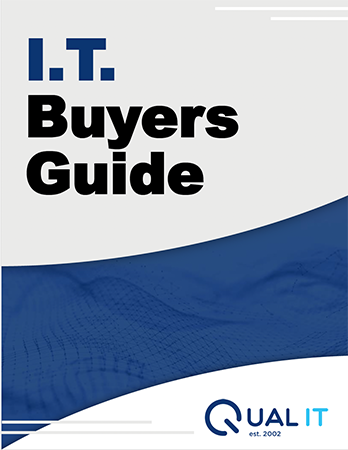
As a healthcare leader in Salt Lake City, your mobile device is more than just a convenience. It's your pocket-sized portal to patient records, EMRs, billing systems, and private staff messages. But here’s what many practice owners don’t realize:
That same device could also be your biggest cybersecurity risk.
Tracking, eavesdropping, and data theft via mobile phones are no longer the stuff of spy thrillers. They’re happening every day — especially in the healthcare sector, where HIPAA violations and ransomware payouts have become big business.
How Phone Tracking Really Works in a Medical Setting
From front desk managers to physicians on-call, phones are used constantly to communicate PHI, check messages, or even access cloud-based EMR systems. Here’s how attackers can exploit that access:
Spyware Apps
These malicious tools can be installed — sometimes unknowingly — and are capable of recording conversations, reading texts, and capturing screen activity. That includes protected patient data and login credentials.
Phishing Links
A fake text or “secure document” email can launch malware directly onto your phone. Once installed, it’s virtually invisible.
Stalkerware
This form of spyware is often disguised as “admin tools” or system cleaners. It stays hidden while giving attackers full access.
App Permissions
Too many apps have unrestricted access to your camera, microphone, and location. If you haven’t checked these settings lately, you may be unknowingly oversharing.
And no, you don’t need to be “hacked” for this to happen. Most spyware is commercially available — and cheap.
Why This Is a Serious Risk for Salt Lake City Medical Practices
If your smartphone is compromised, your practice is compromised.
Think about it:
- EHR access
- Billing app logins
- Staff messaging platforms
- Password vaults
- Cloud-based scheduling
- MFA tokens sent via text
One phone breach could open the door to your entire tech ecosystem. And for practices bound by HIPAA, that kind of exposure can result in six-figure fines, lawsuit exposure, and public trust erosion.
According to the Verizon Data Breach Investigations Report, small healthcare practices lose an average of $120,000 per incident. But the long-term cost — reputation, referrals, team morale — often hits even harder.
Signs Your Phone Might Be Compromised
These clues aren’t always obvious, but keep an eye out for:
- Battery drain that doesn't match usage
- The phone running hot even when idle
- Apps crashing or freezing frequently
- Strange new apps or system icons
- Background noise on calls
- Unusual spikes in data usage
If even a few of these show up — especially during or after any phishing emails or odd texts — take them seriously.
How to Lock Down Your Mobile Security (Without Losing Your Mind)
Here’s what we recommend to all Salt Lake City medical providers we work with at Qual IT:
- Run a Mobile Security Scan
Use healthcare-grade antivirus and threat detection apps. These go deeper than standard consumer apps and are tailored to protect PHI.
- Audit App Permissions
Revoke location, microphone, and camera access from any app that doesn’t absolutely require it. This is especially important for social apps and unused software.
- Update Your OS and Apps
Software patches close the very holes that attackers exploit. Skipping updates is like leaving your practice doors unlocked overnight.
- Factory Reset if Necessary
If you confirm a breach or can’t remove spyware, wipe the device, reinstall essentials, and change every login credential used on that device.
- Use MFA and Biometrics
For all cloud-based platforms, set up multi-factor authentication (preferably using an authenticator app). Enable Face ID or fingerprint login wherever possible.
Bottom Line: Your Phone is a Medical Device. Treat It Like One.
This isn’t just about privacy — it’s about patient safety, practice liability, and your peace of mind. If your phone is connected to your work systems, it needs the same level of protection as your server room.
At Qual IT, we help Salt Lake City practices secure their entire IT ecosystem — from front desk terminals to physician smartphones — all while staying fully HIPAA compliant.
Want to know if your mobile device (or your staff’s) could be your next vulnerability?
Click here to schedule your FREE Network Risk Assessment today.
We’ll show you exactly where the cracks are — and how to fix them before anything slips through.



